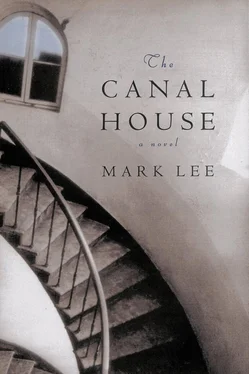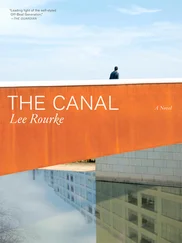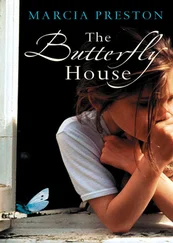Though I was supposed to be executive director of this new organization, I doubted if a man like Richard could resist the desire to be in control. And what was the nature of our own relationship? Was this his way of courting me? Was Hand-to-Hand the sort of indulgence that rich men bought for their lovers, something a bit more elaborate than a boutique in Knightsbridge?
“For godsake, just take it!” Laura told me. “He’s giving you what you want.”
“It might not work out.”
“Nothing ever works out, Julia. But we do it anyway.”
In the end, I offered a compromise. I didn’t want to be the executive director, but I would set up and run the first refugee camp. Richard hired a bookkeeper and a secretary; then the research staff at his bank began to monitor guerrilla wars and natural disasters. While we waited for the right opportunity, I continued to shuttle between London and Freetown.
The president of Sierra Leone had campaigned with the slogan “The Future Is in Your Hands,” so the rebels decided to chop off the hands of everyone they suspected of having voted. I was in charge of the clinic at Connaught Hospital and my first week there had been somewhat harrowing. The patients lay on straw pallets in the corridors, frail, exhausted, terrified. I wasn’t prepared for the number of children who had been raped and mutilated. It seemed as if the country was determined to release its fury on those least able to defend themselves.
The hospital was a large cavernous building with rocket holes in the south wing. There was a stench from a broken sewer pipe and a half-burned garbage pile that smoldered in the courtyard. One night the power failed, and as I walked through the shadowy rooms with a candle I felt like I was living in a distant age. The patients were grateful and there was a pleasure in helping them. But my most popular idea was the organization of a rat squad. We’d march down the hallways with homemade brooms and the rats would flee in front of us, scrambling over the patients, making little squeaks and leaping through the air. There were shouts and whistles, the laughter of the chase, and then a wave of rats would scurry down the central staircase to a courtyard where a fifteen-year-old boy named Morgan would beat them to death with a shovel.
I’m scared of rats, but I pretended to be positive and confident. Most of the time, I could get away with it, but down in the courtyard, when I counted up the bag like a gamekeeper and handed out little rewards, a few of the rats would start moving again and crawl toward me. I would talk quickly then and step back to the staircase, trying to keep the scream from exploding out of my throat. At night, I would return to my blue toothbrush at the British military compound and go through my little rituals. A shower, if possible. If not, a sponge bath. Then I’d light a mosquito coil and sit on my cot with a flashlight and spend twenty minutes or so with a book that had nothing to do with my life. If I was relaxed enough, I’d lie down and search through my memory for a pleasant image, usually from my childhood. At the beach, perhaps, lying on the warm sand. Or on a lake in a rowboat, drifting through some flowering lily pads.
Two months after I met Richard, I finished my three-week interval and got back on the plane to London. I was recovering from dysentery and still felt tired and feverish. All I wanted was a bath and a bed with clean sheets, but Billy Monroe was waiting for me in the arrival area. “Mr. Seaton thought you might want a ride,” he said.
It was a crucial point in my relationship with Richard, but of course he wasn’t actually there.
I could have said, Thank you very much, but I’m taking the train. It would have been easy to give up the momentary comfort and to deflect Richard’s world. But at that moment I wanted to get into someone’s car and have him handle everything. My weariness and Billy’s air of authority were a potent combination. I smoothed back my hair and handed Billy my bag as he led me out of the terminal to a Mercedes-Benz. A black plastic container was in the backseat.
“What’s this, Billy?”
“Hot towel. Mr. Seaton likes them after a long flight.”
I unscrewed the top and found a moist towel, scented with lemon. I ran the towel across my face, amazed at how wonderful it felt.
“Just drop it on the floor when you’re done,” Billy told me. “Someone will pick it up.” Aside from that, Billy didn’t say anything. He drove me to Laura’s flat. Richard, he said, would call in a few days.
Laura suggested I buy a new dress and get my hair cut. I was tempted at first, but resisted. “This is a professional relationship,” I said again. “We spend all our time talking about relief work.”
“He’s going to be sitting across the table from you, Julia. You might as well look attractive.” She stared at my forehead; I’d hacked off my bangs with some surgical scissors when a lock of hair kept falling in my eyes.
“I don’t like dressing up for people.”
“Then dress up for yourself. You’re in London, not in some awful war zone.”
In the end, I did get my hair cut, then bought some heels and a cashmere sweater. Laura said I looked good, but when Richard showed up a day later and took me to a restaurant, he talked entirely about Hand-to-Hand. When he dropped me off, he got out of the car and shook my hand at the door. I tried to act as if that was all I’d expected, but I did start to wonder what exactly we were doing. “Take care of yourself,” he said. I studied his face; it was friendly, not passionate. “The British aid coordinator in Freetown says you take a lot of risks.”
And he doesn’t take enough of them, I thought. I was halfway up the stairs to Laura’s flat when I realized that Richard or one of his employees must have called Sierra Leone while I was there to make sure that I was all right. I was in Richard’s thoughts, touching him in a distant sort of way.
In my twenties, I’d believed that anyone doing relief work had to be a better person than a rich man who owned a bank. These days I knew the international aid world and could see it clearly. Most of the top UN people were career builders, oblivious to the people they were supposed to be serving. They spent their time in guarded compounds, faxing off memos and adding up their mission allowance. The British soldiers training the army were professionals who had worked all over the world, but over and over I’d met aid workers who were there because of a failure back in their own country. In Freetown, no one would know about their bankruptcy or recent divorce. They drove down the crowded streets in their air-conditioned Land Rovers and complained about the Africans during Friday night drinking hour at the British High Commission. I’d met two saints in Sierra Leone: a Dutch doctor who worked near the border and a French woman who had started a program to provide prosthetics for people mutilated by the war. But saints, real saints, were quirky, difficult people, indifferent to anything aside from their calling. I wasn’t a saint. It was much too lonely.
When I returned to England, I expected Billy to be waiting for me at the airport, and I guess that was the turning point. I stayed with Laura but went out with Richard every night I was in London. It was just so pleasant to be in his world. When we saw a play together, the playwright would join us for drinks afterward. When we went to a restaurant, the chef would come out to recommend a special dish. Once, I mentioned a book I had read about in the Times and the novel was delivered to Laura’s flat the following afternoon. On the title page the author had signed his name and written For Julia, who has good friends .
That week a photograph of Richard and me appeared in one of the London tabloids. We had just attended a fund-raising dinner where an aging rock star played his guitar. The news photographer caught us walking out of hotel. I have a silly grin on my face and look startled by the flash of the camera. Richard is right beside me, raising his hand like a policeman as if to protect me from the intrusion. When I saw the photograph I thought, This isn’t me. The grainy black-and-white image didn’t match the vision I had of myself. No one would allow the woman in the photograph to deliver a baby or remove a bullet from someone’s chest. Invite her to dinner, of course, but keep her away from scalpels and forceps.
Читать дальше












